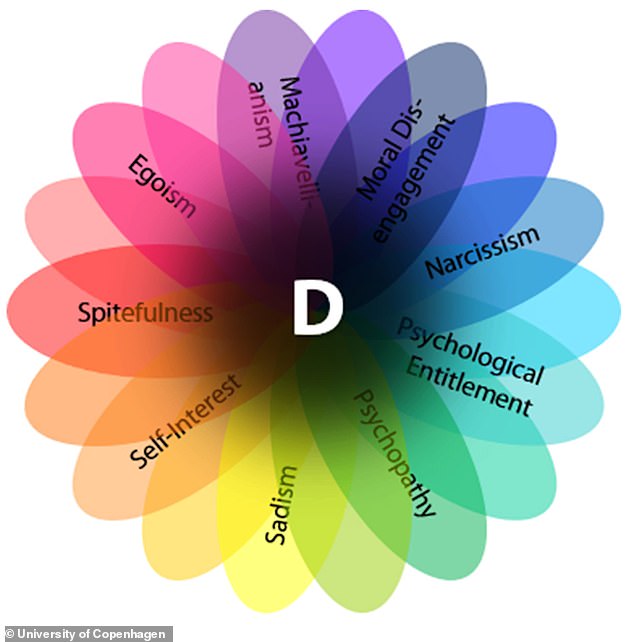Surprisingly Positive Personality Trait That Predicts Whether You’re Likely to Commit a Crime, Study Finds
Many of the personality traits commonly found in criminals are to be expected: aggression, narcissism, and defensiveness, for example.
But new research has revealed an even more surprising trait you might associate with people with a sunnier disposition.
Research has shown that openness, which experts define as the willingness to seek new experiences, is also often reflected in the character of perpetrators.
Experts from the Babes-Bolyai University in Romania conducted interviews with prisoners in a maximum-security prison and compared their personality traits with those of a group of matched controls from the community.
According to the study, repeat offenders are likely to have high levels of neuroticism. Pictured: James Gandolfini as his character, gangster Tony Soprano — one of the most famous fictional criminals
The researchers suggested that the shared enjoyment of new experiences among prisoners may also increase their willingness to take risks, which can lead to criminal behavior.
However, openness was not found to be a predictor of recidivism, suggesting that this characteristic may be more relevant for first criminal acts.
The research found that this trait is the only positive personality trait that increases the likelihood of committing a crime.
Extraversion, which is typically associated with sociability and assertiveness, was found to be lower in both first- and repeat offenders compared to individuals without a criminal history.
Also surprising was the association between neuroticism and criminal behavior.

The study examined prisoners in a maximum security prison in Romania, such as Bucharest-Rahova (pictured)
Neuroticism – the tendency to respond poorly to stress, resulting in anxiety, anger and sadness – was consistently associated with both first-time offenses and recidivism.
This suggests that emotional instability may be a risk factor for participating in criminal activities and continuing to do so in the long term.
The study found that the strongest predictor of criminality were the “dark trinity” traits: higher levels of emotional instability, risk-taking and deceitfulness.
“Each individual combination of these characteristics has a significant impact on criminal behavior and the likelihood of recidivism,” said Professor Laura Visu-Petra of Babes-Bolyai University, who led the study.
“Individuals involved in criminal activity report emotional instability (high neuroticism), reduced positive emotions, lower assertiveness, and reduced sensitivity to social feedback (low extraversion),” she said. PsyPost.

Prisoners are more likely to be emotionally unstable, willing to try new things, and less assertive than the general population.

All dark personality traits can be traced back to the general tendency to put one’s own goals and interests above those of others, even to the point of taking pleasure in hurting others. Egotism, Machiavellianism, narcissism, psychopathy, sadism, resentment, and others are some of the traits that represent the evil dark sides of the human personality.
Interestingly, the study found that extraversion – typically associated with sociability and assertiveness – was lower in both first-time and repeat offenders compared to individuals with no criminal history.
This means that criminals are more likely to be reserved or less extroverted than their peers.
Not surprisingly, the researchers also found that sadism – the tendency to enjoy harming others – was linked to first-time offenses, but not to recidivism.
The scientists warn that not everyone with a personality type belonging to the “dark trinity” will become a criminal.
Professor Visu-Petra says that people with these traits are also often found in high-profile corporate positions.
Other dark traits, such as a lack of empathy, vindictiveness and a sense of deservingness over others, were not found to be significant predictors of criminal behavior.
The study, published in Scientific Reports, involved 578 people divided into two groups: a general sample of 282 people and a group of 296 prisoners from two maximum-security prisons in Romania.
The group of prisoners was further divided into two subgroups: first-time offenders (129 individuals) and repeat offenders (167 individuals).
Two researchers observed the prisoners from inside the prison, which is unusual, in order to get a representative picture of the prisoners’ personality traits.
The researchers hope that the study will provide insight into the way prison staff interact with inmates.
“This not only impacts the care providers working in correctional facilities, but also contributes to a safer and more accepting community for all of us.”
